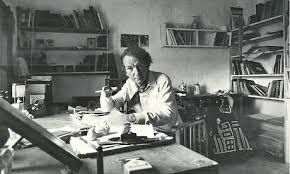A Short Critique of Desmond O’Grady’s Poetry
A Short Critique
of Desmond O’Grady’s Poetry
1.
Multicultural and Historical Scope
O’Grady’s poetry is renowned for its international
breadth and classical reach. He draws from the ancient Mediterranean, Islamic
Spain, and post-colonial North Africa, infusing Irish poetry with a global
consciousness. In Hellas, for instance, he writes:
"Time’s layers: Troy’s
charred stones, / Rome’s columns out of joint, / Alexandria’s lost shelves – /
Still smoke under the present."
This passage demonstrates O’Grady’s command of
historical layering, drawing on mythic and real ruins to meditate on cultural
continuity and decay. His imagery spans millennia but remains grounded and
immediate.
2.
Linguistic Control and Classical Influence
O’Grady’s work is formally disciplined and often
austere, shaped by his engagement with classical and Semitic languages. He
achieves compression without sacrificing clarity:
"We are not heirs. / The
past is not ours to inherit. / We seize it—or it slips."
—from The Road Taken
This aphoristic turn reflects the influence of both
Greek gnomic poetry and Arabic wisdom literature. O’Grady pares language down
to its essential truth, echoing the formal precision of ancient lyric while
speaking to modern anxieties about heritage and loss.
3.
Philosophical and Moral Inquiry
Many of his poems meditate on impermanence and the
fragility of human civilisation. In The Alexandrians, he writes:
"Their lamps went out; the
papyri rotted. / A sea-change of silence settled / Where once syllables
flamed."
Here, the beauty of knowledge, language, and
scholarship is eulogised in an elegy to Alexandria. The metaphor of “syllables
flaming” captures the poet’s reverence for language—and its transience.
Similarly, in a later poem, he reflects:
"Words are what survive /
When cities fall. / But who remembers / The tongue of Troy?"
These lines encapsulate the paradox at the heart of
much of O’Grady’s work: that poetry both preserves and loses and that language
is both legacy and ruin.
4.
Emotional Reserve
One potential shortcoming of O’Grady’s poetry is
its emotional coolness. His meditative tone, while intellectually rich, often
avoids confessional warmth or personal revelation. Even in poems that touch on
loss, such as Eurydice, the feeling is filtered through myth and
restraint:
"He
turned. / Not from love’s weakness / But the strength of doubt. / And she returned
to shadow."
This is elegant and intellectually potent, but
emotionally distant. The emphasis is on the psychological allegory of doubt,
not the visceral pain of losing a loved one. It is a cerebral take on an
archetypal human tragedy.
5.
Archaising Tendencies
O’Grady’s diction sometimes carries a formal or
archaic tone, reflective of his classical leanings. In poems such as To the
Muse, he writes:
"Come, goddess, not with
lyre, / But fierce with fire."
The invocation of a "goddess" and the
apostrophic "Come" harken back to Homeric or Pindaric styles. While
this lends gravitas, it may alienate readers used to more contemporary or
colloquial voices.
Conclusion
Desmond O’Grady’s poetry is intellectually rich,
stylistically controlled, and globally resonant. Through his verse, the
classical world converses with the modern, and ruins whisper into the present.
While his work can at times be emotionally reserved and stylistically remote,
it stands as a testament to poetry’s power to stretch across cultures and
centuries.
His voice—though quieter in the canon—is one of the
more original and erudite of modern Irish poetry. As he once wrote:
"I plant my words / In
borrowed soil, / And watch them rise / Like native grain."
That line may well serve as his poetic credo: a translator of civilisations, a citizen of many worlds, and a poet who gave Irish letters a broader compass.




Comments
Post a Comment